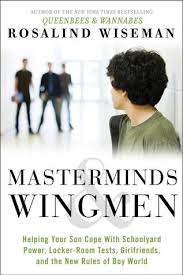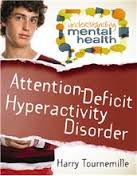Understanding Mental Health (series of 6) New York: Crabtree Publishing Company, 2013, 2014.
Tournemille, Harry. Attention Deficit Hyperactivity Disorder. 978-0778700692 48 p. $23.95
Iorizzo, Carrie. Anxiety and Phobias. 978-0778700821 48 p. $23.95
Two books from the six-book series focusing on mental health problems. The books open with, and often include, personal experiences with the disorders, defining and giving causes for these issues. Various therapies and drugs are discussed in sections on diagnosis and treatment. Importantly, how to deal with stigma, managing behavior, and even making friends, are all covered in a short space. Both books end with a “Coping Toolbox” of tips to try and self-care tips, offering ideas like keeping a journal; meditation; distraction; or visualization. Fine, helpful additions for middle school and above, these books are informative without being threatening. Glossary, index, other web resources included. Also part of the series: Autism Spectrum Disorder; Depression and Other Mood Disorders; Fetal Alcohol Spectrum Disorder; and Schizophrenia and Psychotic Disorders.
616; Mental Health Melissa Scott, Shenango High School
Essential Library of Social Change (series of 6), ABDO Publishing Company, 2013.
Anderson, Jennifer Jolene. Women’s Rights Movement. Minneapolis, MN: ABDO Publishing Company, 2014. 112 p. 978-1617838897 $23.95
Eboch, Chris. Green Movement. Minneapolis, MN: ABDO Publishing Company, 2014. 112 p. 978-1617838880 $23.95
Two books from the six-book series presenting the stories behind the rise of social movements. Both books detail the movements from earliest beginnings to today. The unfortunate “retro” color scheme of yellows and greens over black and white photos will do little to attract readers; and dismal covers lack any overview of the movement or indication of each books individual contents, when students often need a description to be drawn to the topic. Readers who do venture into the books will find the comprehensive and interesting stories behind these movements. Women’s Rights Movement chronologically details major proponents Elizabeth Cady Stanton, Susan B. Anthony, Lucretia Mott, Sojourner Truth, and others, with the Temperance Movement, the Nineteenth Amendment, Title IX and more. Green Movement discusses environmental issues like population growth, climate change, Love Canal, and environmentalists John Muir, Theodore Roosevelt, Rachel Carson, on to present-day conservationists. Timeline, Essential Facts, Glossary, Index, Resources (updated at abdopublishing.com) and extensive Source Notes. Also part of the series: Animal Rights Movement; Civil Rights Movement; Disability Rights Movement; and Gay Rights Movement.
Social Sciences Melissa Scott, Shenango HS

Wiseman, Rosalind. Masterminds and Wingmen: Helping Our Boys Cope with Schoolyard Power, Locker-Room Tests, Girlfriends, and the New Rules of Boy World. New York: Harmony Books, 2013. 378 p. 978-0307986658 $25.00
Wiseman, author of Queen Bees and Wannabes which spurred national thinking about girls’ inner lives and relationships (and the movie Mean Girls), now turns her attention to the usually overlooked world of boys’ social problems. Beginning with sobering statistics on the state of boys, she declares, “we often make the mistake of believing that if a boy doesn’t come to us with problems, then he doesn’t have them.” Not so, she declares, sharing insights from over 200 boys nationwide, of all socio-economic classes, who opened up to her about expectations, letdowns, insecurities, and misunderstood behavior. “The reality,” she states, “is that most boys’ days are filled with many of the same social challenges that girls face, and what they learn from those experiences matters…. boys’ problems can look deceptively simple and we can’t interpret the signs when they’re calling out to use for help.” Wiseman goes on to identify those signs, from the slacker attitude, to lying, parenting styles that further alienate, and a host of problems and technologies that create new, troublesome worlds our boys desire to conquer, but need guidance to do so. According to Wiseman, they will listen to adults who listen to them without hypocrisy and without lecture, willing to show them how to be real men. Wiseman means her lengthy book to be read as needed, focusing on the area of need. Throughout, she refers to SEAL, the strategy she teaches boys for dealing with conflict: STOP and SET it up (think about the best way to confront); EXPLAIN (the problem needs to be stated); AFFIRM and ACKNOWLEDGE (the right for both sides to be treated with dignity); and LOCK (in or out, decide how or whether to continue the relationship). Judging from the boys’ responses and a ton of “aha, so that’s why they do that” from readers here, the book has hit some powerful thinking, namely that our boys are not simple, and they need us. Highly recommended for parents and anyone who works with boys and teenagers.
649; Psychology; Teenage Boys Melissa Scott, Shenango High School


